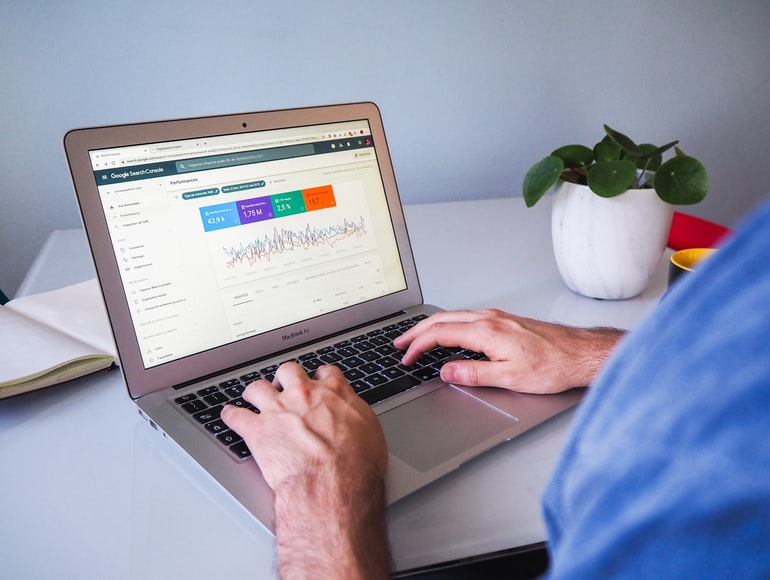SEO Techniques to Promote Your Android Apps

Developing Android apps can be really painstaking. Technical aspects aside, you have to dedicate a lot of time to promoting your app. Even if you distribute it for free, you naturally want users to download it, and for that, the app needs to pop in front of their eyes. Can you use SEO for this? The answer is a resounding “yes”!
Principal SEO techniques

The following methods have been widely used to promote websites in search. They can all be applied, in one way or another, to promoting Android applications:
· write a clear, optimized copy for your app;
· build backlinks;
· do some online-PR: post press releases and offer the app to other bloggers for review;
· post on relevant forums and in authoritative directories;
· make a website or blog to promote yourself as a developer;
· use relevant social networks to promote the app.
Do not think that these methods are excessive, especially if you try to earn something with your apps. Using them regularly and correctly will soon bring tremendous results.
Using SEO for Android Apps

There are nearly 3 mln apps in Google Play Store, and only 13% of them are poorly ranked. This means that every new app that enters the pool is literally swarmed by the existing mass. There is no limit on how many apps developers can upload to Play Store, but there is clearly a problem of having your work noticed. Below we will explain how you can use the afore-mentioned methods to push the app higher in the ranks and gain downloads and profit.
Write a clear, optimized copy for your app
Using keywords in your app description will generate traffic from search. You can use some tools, e.g. Google Keyword Tool, to find as many relevant keywords as possible. Today, copywriters increasingly use the LSI-keywords to craft their copy. It means that there is no longer any keyword stuffing, and the visitor to your app page in Google Store will read a clear text about the app’s functionality.
Dos: do keyword research and study the competitors’ copy to make sure your description really stands out.
Donts: do not slag off the competitors if you want to tell the users how good your app is. Instead, focus on the positives and strengths.
Build backlinks to the app
After writing a copy this is possibly the hardest task. Without backlinks, however, you will not be able to promote your app. Interestingly, Google also confirmed that building backlinks helps to push the app in SERPs.
There are two resources you can build backlinks to:
· your app’s Google Play Store page;
· your app’s page on your own website.
When search engines assess the quality of backlinks, they also pay attention to <dofollow> or <nofollow> attributes that indicate whether or not “link juice” flows intermittently between the sites.
Despite Google’s assuring us that Page Rank is no longer the most important factor, in reality links do contribute to the site’s authority. And here is what happens when you share your app’s page with other sites, listings, and forums: it’s likely to have a <nofollow> attribute because Play Store does not want to dilute its authority by having all whopping 3 mln developers posting their app links all over the Internet.
This means, in effect, that while it is great to have your app Play Store page listed elsewhere, it only enhances Play Store but does very little for another site. Naturally, another site may not be interested.
This is not to say that casually dropping a link to your Play Store app page on relevant forums and blogs is a bad idea. This simply means that you are somewhat limited in your link building opportunities. It is different when you run a website or blog for your apps.
You can create separate pages for every app you develop and link to Google. And next, you optimize the website’s copy and build backlinks to each particular page. When the users find your site in SERPs, they will be able to follow the link to Play Store to download the app.
Building links takes a lot of time, so it has long become a practice to buy backlink packages for SEO. This is not a bad idea in itself, but you need to be very careful when choosing the provider. Just as Google algorithm does not like keywords stuffing, so it dislikes bad, irrelevant links and quickly penalizes sites.
Make sure you choose a good reliable service or aggregator and regularly check backlinks for quality. Some sites, like Backlink Watcher or Ahrefs, have long been established in the field.
Online PR
If you are sure in the quality of your app and the benefits it brings to users, do some online PR. This is the same as doing PR in print or broadcasting media. You can post press releases for every new app, or you can contact bloggers and offer your app for review. In the latter case bloggers may ask for a small payment.
You can, in fact, suggest yourself as a speaker on a podcast for developers or as a guest writer on a relevant site. Before you do so, it is best to have your own website or blog up and running, as you can include its link in your profile on the site.
Forums and Directories
This is a good old and very reliable way to promote anything, from blogs to apps and goods. Make sure you choose relevant forums. Ideally, you should follow the forums where you can casually post a link to your app’s page. If this is not the case, take some time to read the forum where you plan to make a posting, to avoid being banned for spam. As for directories, avoid the spammy ones and choose the long-established.
Promote yourself via your personal website or blog
If you are a serious developer, then having a website or blog for yourself is the same as having a small office in the city center where people can go to order your services. As we said above, you can create pages for all your apps there to include Google Play Store links. This blog can be listed in directories, like Blogarama, that have been around for ages and still do the good job.
You can also present yourself as an expert and take commissions as a developer or participate in industry events. In short, rather than being yet another geek who makes apps for Google, become a professional who can work on ambitious projects.
Use relevant social networks for promotion
Here “relevant” means those networks that are frequented by your customers. If you make apps for businesses, it is unlikely that a posting on MySpace will bring many downloads. Go to Facebook instead. Also, take into account your app’s functionality. If it uses video or audio content or pictures, consider using Instagram or even TikTok to show the app at its best. Again, this is another way to build links and to attract a lot of traffic.
Conclusion
It is possible to promote mobile apps on Android using traditional SEO techniques. Like with any website, SEO will take some time to kick in but, if done correctly, it will produce long-lasting results. Still, it is important not to focus entirely on building links to your app’s page in Google Play Store. Instead, raise your professional bar and promote yourself as a developer. Together, these two methods will bring the desired and deserved results.
Read Also:
- 5 Things for Law Firm SEO You Can Do to Start Getting Traffic and Results
- How Can Your Business Benefit From Video Without Making One Yourself?
- Which Of The Following Is A Key Strategy For Distributing Your Video Content?
- 10 Business Statistics You Must Follow To Grow Up Your Business In 2021
- Complete Guide To Demand Management For Business Owners


























